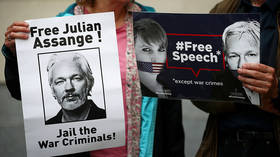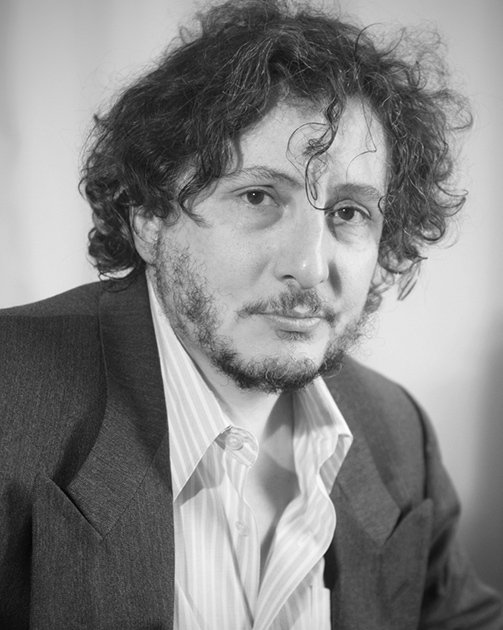Swedish decision to drop rape probe due to no strong evidence comes too late to help Assange

The Swedish prosecutors’ decision to end the investigation of Julian Assange—for the third time—confirms that the sexual-misconduct accusations were always a cynical ploy to trap the publisher in a Kafkaesque legal proceeding.
Swedish prosecutors today announced they were closing their nearly 10-year-old sexual-misconduct investigation of Julian Assange. The reason? The “evidence has weakened considerably due to the long period of time that has elapsed since the events in question.” However, the prosecutor tendentiously added, “the complaint was credible” but that corroborating evidence was not strong enough to pursue the case.
Let’s focus on the verbiage. Note first the use of the word “investigation.” This is very important, because contrary to what innumerable media outlets have reported during the past decade, the Swedes never charged Assange with anything, least of all “rape.” Following Assange’s arrest on April 11 of this year, there was a plethora of media stories informing us that there are outstanding rape charges pending against Assange in Sweden. Human Rights Watch chimed in, saying that Assange was facing a “rape charge” in Sweden. Jeremy Corbyn and the Labor Party feminists urged the UK government to extradite Assange to Sweden to face “rape charges.”
Also on rt.com Rape allegations: TIMELINE and details of Sweden's case against Julian AssangeNote also the legalese: “the evidence has weakened considerably.” No, the evidence hasn’t “weakened” — there was no strong evidence from the beginning!
The Swedish case was a fraud. The prosecutors’ goal all along was to use their powerful coercive tools in order to trap Assange within a slow-moving legal proceeding from which he would be unable to escape, while the US prepared its criminal charges against him. Sadly, despite today’s announcement, the Swedes’ mission has been accomplished.
The Swedish case began in Aug. 20, 2010, when two women with whom Julian Assange had had brief sexual relations went to the police to ask that he be tested for HIV. Swedish prosecutors responded by ordering the arrest of Assange, claiming he was a rape suspect, even though neither woman had made any such allegation. However, on Aug. 25, Swedish prosecutor Eva Finné announced that “the conduct alleged…disclosed no crime at all.” Moreover, the “forensic examination of a condom submitted as evidence, supposedly worn and torn” by Assange during sexual intercourse with one of the women involved revealed no evidence of Assange’s DNA.
Also on rt.com UN torture envoy demands ‘full accountability & compensation’ after Sweden drops rape probe against AssangeAs for the other woman, according to UN Special Rapporteur on Torture Niels Melzer, “she did not want to report any criminal offence, but was pressured into doing so by the Swedish police.” In addition, she “refused to sign her statement, suspended her questioning and left the police station as soon as she was informed that the prosecution intended to use her testimony in order to arrest Mr. Assange on suspicion of rape.”
Following the closure of the case, Assange, having been given permission by prosecutors to leave Sweden, headed for London. However, a new prosecutor, Marianne Ny, took over the case, and in November 2010, she obtained a European Arrest Warrant, demanding that Assange be detained in order that he be questioned in relation to the sexual offense allegations. She also obtained an Interpol “red notice” for wanted fugitives. Ny insisted that Assange could be questioned in person and, only in Sweden.
Assange fought the extradition request, suspecting that—coming as it did three months after the closure of the case against him—it was a ruse. The goal was to get him to Sweden, from where he would be swiftly extradited to the United States, which, in all likelihood had prepared a secret indictment against him. The British courts consistently ruled against Assange and in favor of the Swedish extradition request, even though he had been charged with nothing. On June 15, 2012, following the British Supreme Court’s dismissal of his challenge to the Swedish extradition request, Assange walked into the Ecuador embassy and asked for political asylum.
Also on rt.com Assange 'MAY DIE in jail for revealing war crimes,' his father warns after seeing him behind barsFrom 2010 to 2015, Ny refused to come to London to interview Assange in the embassy; she also refused to conduct the interview via video link, although as Melzer has pointed out, “the questioning of suspects or witnesses in the [UK] was reportedly standard practice applied by Sweden in dozens of contemporaneous criminal investigations under the Mutual Legal Assistance agreement” with the UK. Finally, in March 2015, the Swedish prosecutor agreed to come to London to interview Assange in the embassy. She did so, not out of any humanity or common decency, but out of fear that the Swedish courts would lift her detention order against Assange on the reasonable ground of proportionality. However, even now, Ny procrastinated, and it wasn’t until November 2016 that she finally showed up in the Ecuador embassy. We learned subsequently from e-mail exchange between her and the UK Crown Prosecution Service, that the British were encouraging this procrastination. Neither she nor the CPS wanted any resolution of the Assange case.
On May 19, 2017, Ny announced that she was discontinuing the investigation of Assange. The reason she offered was that “there was no reason to believe the decision to surrender [Assange] to Sweden can be executed in the foreseeable future.”
This was now the second time Swedish prosecutors had dropped their investigation into sexual allegations against Assange. However, this did him no good. Although he had now been trapped inside the Ecuador embassy for five years, the British still had an outstanding arrest warrant against him for bail-jumping. As a result, Assange was to be imprisoned inside the embassy for four more years.
On April 11, 2019, the Ecuador government withdrew Assange’s asylum status (without of course permitting him to challenge this decision in court) and invited the British authorities to enter the embassy and seize Assange. Within minutes, the United States confirmed what Assange had said all along. The United States announced that it would seek his extradition on the basis of a secret indictment that had been prepared a year earlier. The charge was that Assange had conspired with Chelsea Manning to hack into a secure computer system. A month later, the United States announced 17 additional charges against Assange under the Espionage Act. Should the US extradition request succeed—and there is every likelihood that it will—Assange could be imprisoned for 175 years.
Today’s decision by the Swedish prosecutor, unfortunately, comes too late to make the slightest bit of difference to the fate of Assange.
The US extradition application will go forward regardless. The UK courts will almost certainly demonstrate their subservience to the US government by ruling against Assange.
However, what happened today confirms what has been apparent for years: The charges against Assange, whether those emanating from Sweden, Ecuador, the United Kingdom or the United States, were presented for no reason other than to persecute and ultimately destroy a man who had committed no crime - other than to publish information about governmental abuses and war crimes. What is particularly shameful is that the very people who should have been defending Julian Assange—the journalists—were the ones most eager to smear him by giving credence to lurid and false allegations.
Think your friends would be interested? Share this story!
The statements, views and opinions expressed in this column are solely those of the author and do not necessarily represent those of RT.















